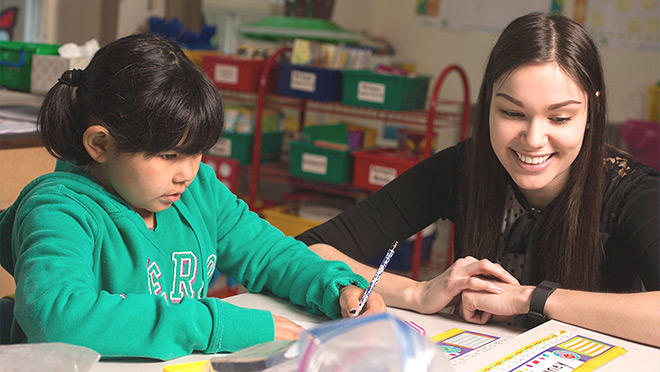How do community grants help? Look at Let's Talk Science

How BC Hydro grant applications work, and why they matter
With a helping hand from one of our community grants, Let's Talk Science is able to deliver a whole lot of science education to B.C. students who normally may have limited, if any, access to it.
Applications for 2023 BC Hydro community grants start today, February 1, and run through March 31. Grassroots grants of up to $2,000 are available to local community-based programs, and Broad Impact grants of up to $10,000 are available to organizations that wish to expand an existing program's reach or to develop a new program across multiple communities in B.C.
How do groups qualify? They need to demonstrate they fit into one of three focus areas: Building the STEM workforce of tomorrow, safety education, or developing a clean and sustainable future.
Let's Talk Science received a $10,000 grant last year. They're a national organization that relies on government funding, corporate and private donations to deliver free STEM (Science, Technology, Engineering, and Mathematics) education to students across the country. They lean heavily on a network of 3,500 outreach volunteers across the country, and they fine tune what they do in each province to match the provincial school curriculum.
While the organization was limited to online delivery of programs during the height of the COVID-19 pandemic, they're very much back in business. And in 2022, they delivered a record number of student interactions in B.C.: more than 40,000 across the province.
"BC Hydro funding has helped us make sure STEM programming is available, free of cost," says Andre Motuzas, Let's Talk Science's director of development operations. "We've been able to get back into classrooms, including a lot of great trips up north, in a bunch of smaller cities and in Indigenous communities. And there's a lot of interest in what we do."
Let's Talk Science is determined to help change what it considers to be a shortage of students who emerge from high school with a solid understanding of science. On their website, they share some important numbers:
- More than half of all Canadian students still graduate high school without a senior level math and/or science credit
- Only 17% of students in Canada complete Grade 12 physics
- Five out of six students aren't eligible to apply for engineering
Motuzas says one big myth about STEM education is that it's only a necessity for those going on to university programs that require it. He says that it's now a requirement for those in skilled trades and in a variety of other professions.
"We really want people to know that STEM isn't just about working in a lab or being a science teacher," he says. "It's involved in so many different jobs."
Volunteers drive Let's Talk Science programs
Motuzas says the latest funding from BC Hydro will likely go towards the organization's mentorship program, and that six B.C. universities are now official Let's Talk Science program partners.
"One of the things we do is provide Indigenous high school and first-year university students with opportunities to develop meaningful relationships with role models at the university," he says. "Some mentors are chosen for their deep understanding of Indigenous cultural history. Students benefit from their guidance and from the opportunity to experience elements of the university campus firsthand.
"That's one reason volunteerism works so well for us," he says. "When we have university student volunteers go into a high school classroom, these high school kids look at them and say, I could be that."
At the University of B.C., the IMPulse Indigenous mentorship program is a partnership between UBC's Let's Talk Outreach site, UBC's American Indian Science and Engineering Society, the STEM Fellowship and, UBC's Faculties of Science and Land and Food Systems.
Going beyond funding to partner with organizations
BC Hydro was one of the first organizations Motuzas connected with when he joined Let's Talk Science a decade ago. He says he quickly learned that he was dealing with staff who were engaged as a partner.
"From our end, it's not just a matter of the funding, but about partnering with an organization we can trust and that has STEM at heart," he says. "BC Hydro knows how important it is to the community."
Learn more about BC Hydro's grants for community groups.
Related: